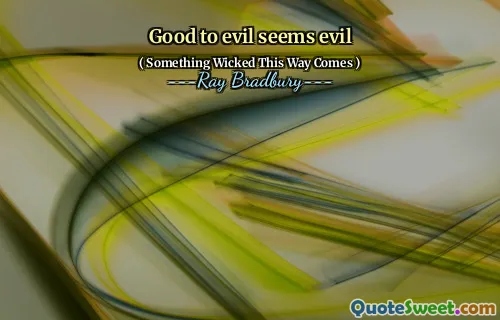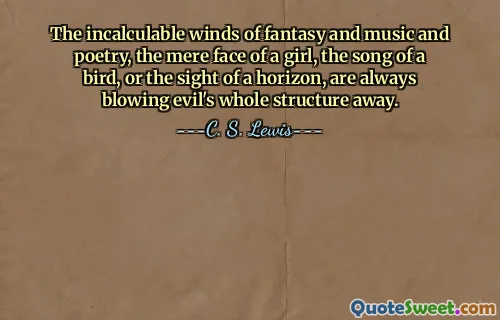The forces of blind life that work across this hilltop are as irresistible as she said they were, they work by a principle more potent than fission. But I can't look upon them as just life, impartial and eternal and in flux, an unceasing interchange of protein. And I can't find proofs of the crawl toward perfection that she believed in. Maybe what we call evil is only as she told me that first day we met, what conflicts with our interests; but maybe there are such realities as ignorance, selfishness, jealousy, malice, criminal carelessness, and maybe these things are evil no mater whose interests they serve or conflict with.
The passage reflects on the powerful forces of life that influence existence, described as more forceful than scientific principles like fission. The narrator struggles to accept these forces as simply a cycle of life, arguing against a naive view that everything is inherently good or directed towards perfection. They highlight a tension between idealism and the harsher realities of human behavior.
The narrator questions whether the concept of evil is just a conflict of interests, as suggested by a significant person in their life. Despite acknowledging that some negative traits may result from self-interest, they contend that feelings such as jealousy and malice exist independently and can be viewed as evils, regardless of perspective. This raises profound questions about morality and the nature of human existence.


